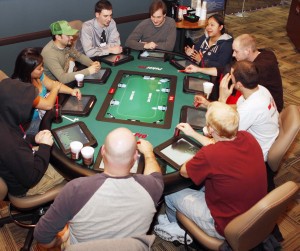






Wisconsin Tribe Scores Victory In E-Poker CaseU.S. Supreme Court Declines To Hear State's Appeal To Previous Ruling |
|
|
 The U.S. Supreme Court has declined to hear the Ho-Chunk Nation’s electronic poker case in Wisconsin, according to a report from the Associated Press.
The U.S. Supreme Court has declined to hear the Ho-Chunk Nation’s electronic poker case in Wisconsin, according to a report from the Associated Press.
It was a win for the tribe.
The tribe will be able to offer the electronic poker games at its Madison casino despite the Wisconsin Department of Justice fighting against it. The state believed the poker tables to be illegal under the 2003 compact with the tribe.
The tribe closed the room last year thanks to the legal trouble.
A ruling in June 2014 went against the tribe, but eventually the 7th Circuit U.S. Court of Appeals ruled in April that the electronic poker room is legal. The reasoning is that the state must criminalize a gambling activity in order to prevent it, according to the report.
The state said the technology being used by the tribe was too similar to blackjack and slots, but the tribe argued it was legal because the players wager against each other, not against the house.
While the electronic poker room is safe, poker games outside of tribal casinos actually remain illegal in the state. A judge ruled in August that it’s illegal to host a game, even one without a rake. Non-tribal run poker games do happen in the state since enforcement of the law is lax, but the threat of getting raided is there. Even friendly bar poker nights can be subjected to a crackdown.
State-sanctioned gambling in Wisconsin is limited to tribal casinos, a lottery and charitable gambling.
